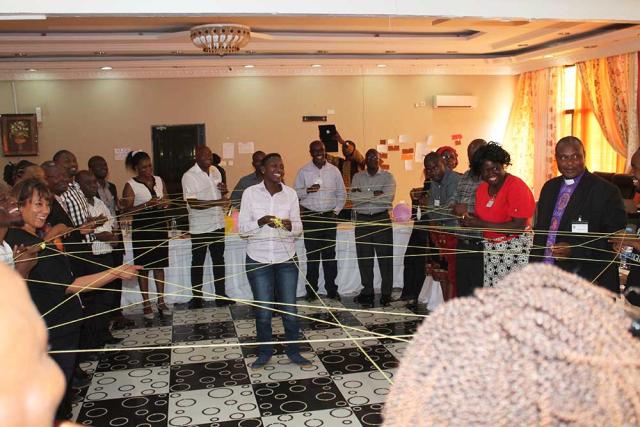Neighbours form new connections to witness to God’s mission of abundant life and human dignity.

Partners of The United Church of Canada gathered for the first time in Zambia to network, collaborate, and connect.
Credit: Courtesy of Michael Mazakaza, Communications Officer Council of Churches in Zambia
Published On: February 27, 2018
It was a rare privilege to travel to Zambia in February 2018 for a Mission & Service–sponsored partners’ meeting dubbed “the Indaba” (Zulu for consultation or gathering). For the first time, the Indaba brought together 15 African partners and one Asian partner who have each related to The United Church of Canada, but who did not necessarily have relationships with each other.
The gathering offered a safe space for partners in the region to meet their neighbours. The group used stories, group activities and conversations, and case studies and presentations to get to know each other; share skills, challenges, and experiences; and forge new networks and connections.
IBON International facilitated a 2½-day workshop on a rights-based approach to democracy. It both strengthened participants’ sense of responsibility for defending human rights, and built skills to empower them to take action.
Sustainable human development is intimately connected with human rights and democracy. Although struggles for freedom in many countries have advanced human rights, serious deprivations and abuses persist. Millions continue to suffer from hunger, illiteracy, insecurity, and unsafe environments. Many also suffer from discrimination and violence in conflict and war. When political and economic elites capture public institutions, governance is distorted to advance narrow interests. And the current pattern of globalization enhances the privileges of multinational corporations and the wealthy at the expense of poor and marginalized people.
Blog Theme